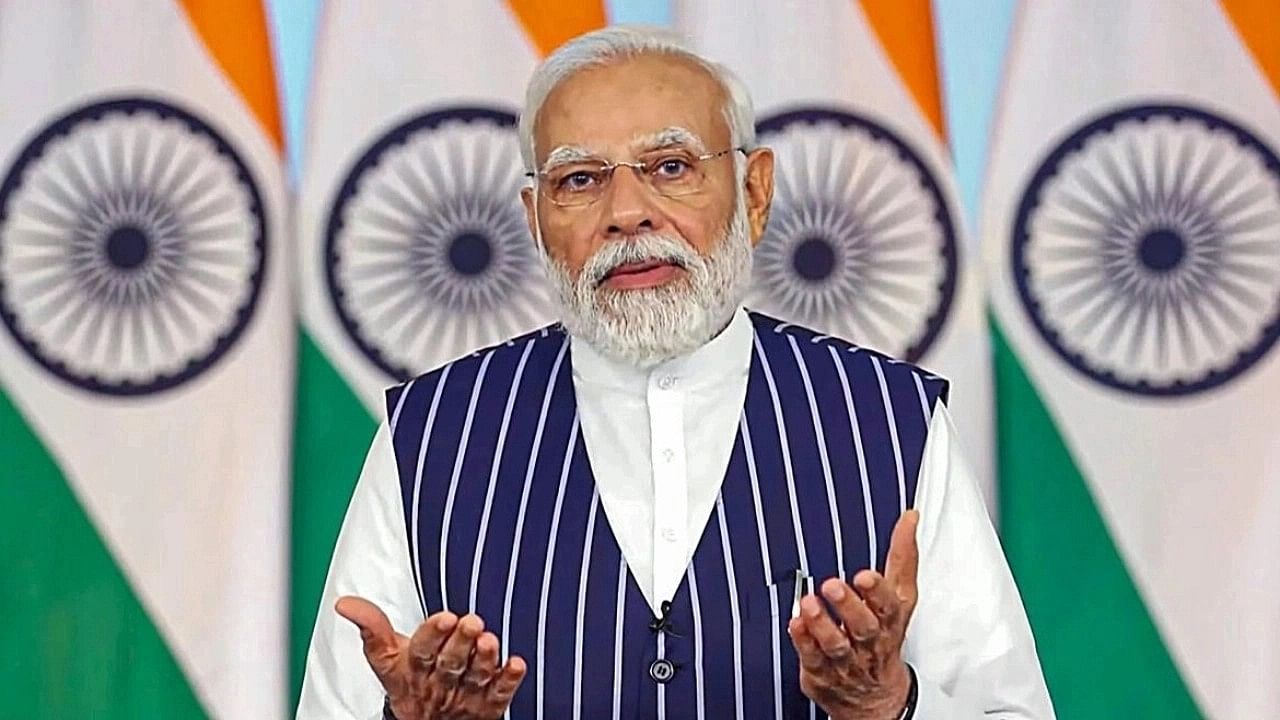
PM Narendra Modi.
Credit: PTI File Photo
New Delhi: A reduced number in Lok Sabha and elections in five states in the next six months have prompted the ruling BJP to accelerate a course correction in its policy direction, with the latest move being the introduction of the unified pension scheme.
If it sought to address the I.N.D.I.A bloc’s onslaught on quota issue by scrapping the lateral entry scheme last week, the BJP government on Saturday sought to blunt the Opposition battle cry to bring back the Old Pension Scheme (OPS) by not insisting on Centre's favoured New Pension Scheme (NPS).
These two “U-turns”, as the Opposition calls it, in less than three months of Modi’s third term have predecessors in the decisions to restore indexation, which was scrapped in Budget, and putting the Broadcasting Bill on the backburner.
The decision to send the Waqf (Amendment) Bill to a Joint Committee of Parliament, prompted by pressure from allies TDP and JD(U), is also seen as changing the dynamics of power because of BJP's reduced numbers in the Lok Sabha.
Modi himself had felicitated an activist who was propagating sub-classification of Scheduled Castes but after a Supreme Court judgement favouring it, the BJP has remained evasive on the issue, after allies like LJP (Ramvilas) coming out against it.
However, the Cabinet was quick enough to make it clear that creamy layer would not be applicable for SCs and STs.
The last two decisions, which came in a span of four days, have a direct impact on the electoral prospects of the ruling coalition, even though Union Information and Broadcasting Minister Ashwani Vaishnaw refused to link it to the upcoming Haryana and Jammu and Kashmir Assembly polls.
In its past two tenures spanning ten years, the BJP had been vociferously defending the NPS even as the Opposition found it a cause celebre after a large number of employees voiced their anguish, calling it as something that will put their money at the mercy of the markets.
In the past couple of years, the Congress and some other Opposition parties had intensified their protest against the NPS while favouring OPS’ return.
Though it did not mention OPS in its Lok Sabha manifesto, the Congress had used it as a prominent theme in Assembly elections and had benefited in Himachal Pradesh where it returned to power.
The BJP appears to be wary of its impact, at least in Haryana, and does not want to antagonise government employees. With Assembly polls in Haryana and Jammu and Kashmir scheduled over next month, Maharashtra, Jharkhand and Delhi will go to polls by February.
The speed with which the Narendra Modi government binned its own proposal to recruit 45 specialists through lateral entry and initiating a process to invoke quota in such recruitment has subtly acknowledged the success of the Opposition campaign linked to 'preserving' the promises laid down in the Constitution for India's citizens, including inclusive social justice programs, like reservation, in the Lok Sabha polls.
